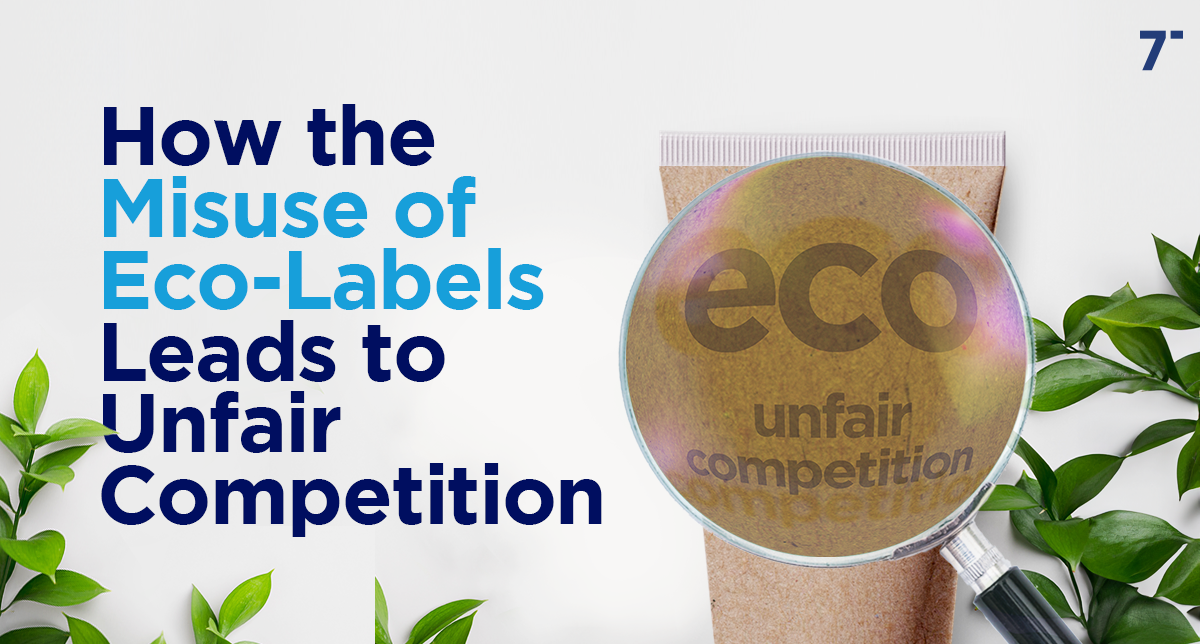Climate change has led to eco-labels that promote sustainable consumption. Found on product packaging or in online catalogs, these labels help consumers and businesses choose products that meet environmental standards[1]. Often referred to as green labels, eco-labels are managed by government agencies, nonprofits, or private companies, eco-labels can cover a single product stage or the entire life cycle of the product.
There are many types of eco-labels, including full life-cycle standards; carbon footprint labels showing production emissions; fair trade labels ensuring ethical labor practices; and Energy Star labels for energy-efficient appliances and electronics.
However, despite the benefits of eco-labels in guiding consumer choices, the misuse of these labels can lead to unfair competition under the concept of international intellectual property law, as set out by the Paris Convention in 1883, especially when competing companies engage in deceptive practices known as “greenwashing”, as will be explained hereinafter while outlining (I) the concept of unfair competition under the Paris Convention, and (II) how it applies to the misuse of green labels.
1.The concept of unfair competition under the Paris Convention
The Paris Convention for the Protection of Industrial Property, adopted on March 20, 1883, includes 180 contracting parties, among them several Arab countries, such as Saudi Arabia, the United Arab Emirates, Kuwait, and Lebanon. This convention sets out fundamental principles for protecting industrial property rights, including patents, trademarks, and designs, and highlights the importance of fair competition.
According to Article 10bis of the Paris Convention, unfair competition is defined as “any act of competition contrary to honest practices.” It mandates that countries of the Union must provide effective protection against unfair competition to their nationals.
In particular, it prohibits actions that create confusion regarding the establishment, the goods, or the industrial or commercial activities of a competitor. Furthermore, it prohibits false allegations that aim to discredit a competitor’s establishment, goods, or activities. Additionally, the article forbids any indications or allegations in trade that could mislead the public about the nature, manufacturing process, characteristics, suitability, or quantity of goods. These provisions are crucial for maintaining fair competition and protecting both consumers and businesses from deceptive practices.
2.When Does the Misuse of eco-Labels Constitute Unfair Competition?
In general, any use of eco-labels in the industrial and commercial field contrary to honest practices is considered as unfair competition.
For instance, a business might use an eco-label similar to a trademark already used by another popular business, especially if it includes green colors or nature themes. This similarity could cause confusion among customers, thinking the popular brand has released new products because of the eco- label printed on the other brand’s items.
Moreover, businesses might claim, whether legitimately or not, that their products are eco-friendly by using green labels while falsely claiming that competing businesses’ products are not. These false allegations create a negative image of the competing business in the consumers’ mind, leading them to choose the first business’ products instead.
A competing business might also use an eco-label without prior authorization from the issuing organization, leading to false statements about the nature of the goods and the manufacturing process, such as claiming they are eco-friendly when they are not, simply to position itself as superior to competing businesses. This type of behavior is called “greenwashing”, which misleads the public by giving a false impression of being environmentally friendly.
Recently, in a “greenwashing” lawsuit against Tyson Foods, filed by the Environmental Working Group, the latter claimed that Tyson Foods misleads consumers with its net-zero emissions goal by 2050 and “climate-smart” beef, lacking real plans to achieve these targets. Although a Tyson representative stated that the company has a long history of sustainable practices and responsible management of environmental resources[2].
Conclusion
Eco-labels help consumers make better choices to support the health of our planet in the face of climate change. However, misuse of these labels can cause legal issues between competing businesses, making it essential to maintain honest practices and fair competition. Governments and issuing organizations should be strict in granting eco-labels and hold any business that misuses or illegally uses them liable.
[1]https://www.epa.gov/greenerproducts/introduction-ecolabels-and-standards-greener-products
[2] https://www.wsj.com/articles/tyson-foods-sued-for-greenwashing-f7290058






